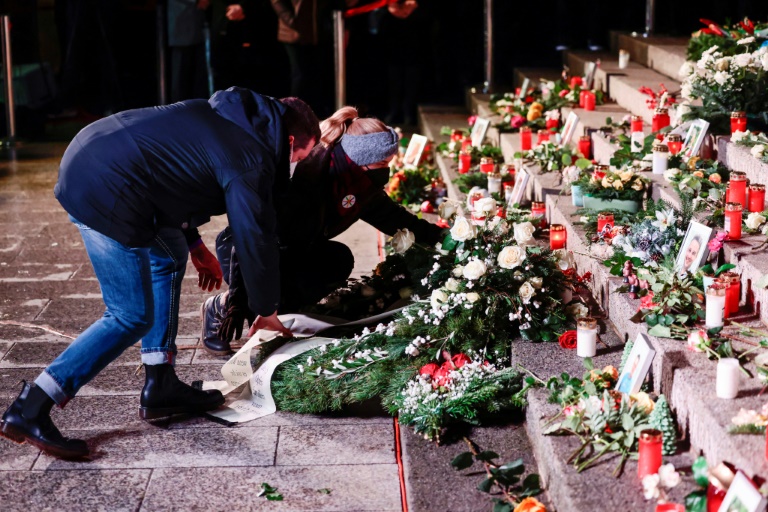Germany must “clarify” the circumstances surrounding a deadly lorry attack on a Christmas market in Berlin in 2016, President Frank-Walter Steinmeier said Sunday in a speech to commemorate its five-year anniversary.
Twelve people were killed when 24-year-old Tunisian Anis Amri ploughed a truck into the market on December 19, 2016, the deadliest Islamist attack to be perpetrated on German soil.
A 13th victim died this year having suffered serious injuries in the assault, claimed by the Islamic State (IS) group.
The state had “a duty to clarify the mistakes” that meant the attack was not prevented, Steinmeier said at the ceremony to mark the anniversary.
Germany “must correct these mistakes, where these happened, and it must further investigate when there are new findings,” he said, following an open letter from the families of the victims to new Chancellor Olaf Scholz asserting shortcomings in the handling of the case.
In the letter, they urged the government to order new inquiries into the individuals responsible for ordering and abetting the attack, an element they say has been under-explored.
– Church memorial –
In a statement ahead of the memorial, Scholz said the events were “etched in our collective memory” and shared his condolences with the families of the victims.
Tributes to the victims took place at the Kaiser Wilhelm Memorial Church, whose bell tower, partially destroyed in World War II, overlooks the Breitscheidplatz square where the attack happened.
The church’s bells rang out at 20:02 local time (1902 GMT), the exact hour at which the truck drove into the Christmas market at full speed.
In his speech, Steinmeier said there were “failures in the support offered to those left behind” in the weeks following the attack, another theme picked up on in the relatives’ open letter.
The families call for the “dignified treatment for those affected” as well as the clarification of the circumstances of the attack.
“The Breitscheidplatz attack still raises a number of questions that have not been sufficiently answered in my opinion,” Vice Chancellor Robert Habeck said on Friday.
“The relatives of the victims have every right to be angry and ask for answers,” Berlin’s interior minister Andreas Geisel told local broadcaster RBB.
Whether this was possible after five years, Geisel said he “does not know”.
– Surveillance mistakes –
On the run for four days after the attack, Amri was eventually located and shot down by police in Italy.
Different inquiries highlighted errors in the surveillance of Amri, who arrived in Germany in 2015 and was quickly identified as a potentially dangerous Islamist and a drug trafficker.
The German authorities remain on alert over the threat of further attacks.
Since 2000, law enforcement has foiled 23 such attacks, the interior ministry said in September.
There are currently 554 individuals in Germany considered to be dangerous Islamists, according to police.
IS also claimed responsibility in 2016 for a knife attack in Hamburg, a bombing in Ansbach that injured 15 people and an axe attack in Bavaria where five were hurt.
None of the assailants came to Europe carrying orders from IS, according to authorities.
All of them seem to have organised their actions alone, sometimes under the influence of mental disorders.











